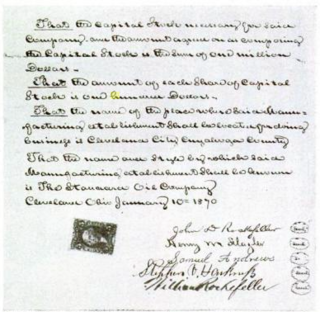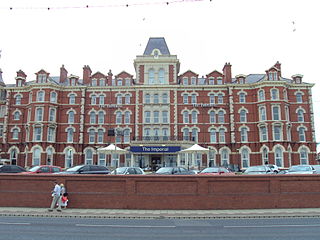
A board of directors is an executive committee that supervises the activities of a business, a nonprofit organization, or a government agency.
Nominet UK is currently delegated by IANA to be the manager of the .uk domain name. Nominet directly manages registrations directly under .uk, and some of the second level domains .co.uk, .org.uk, .sch.uk, .me.uk, .net.uk, .ltd.uk and .plc.uk.

An annual general meeting is a meeting of the general membership of an organization.

Zee Entertainment Enterprises (ZEEL) is an Indian media conglomerate. Headquartered in Mumbai, it has interests in television, print, internet, film, and businesses related to mobile content, and operates 45 channels worldwide.

In corporate governance, a company's articles of association is a document that, along with the memorandum of association forms the company's constitution. The AoA defines the responsibilities of the directors, the kind of business to be undertaken, and the means by which the shareholders exert control over the board of directors.
The Faculty of Actuaries in Scotland was the professional body representing actuaries in Scotland. The Faculty of Actuaries was one of two actuarial bodies in the UK, the other was the Institute of Actuaries, which was a separate body in England, Wales and Northern Ireland. While the Faculty of Actuaries and the Institute of Actuaries were separate institutions, they worked very closely together, and the professional qualifications and professional standards for actuaries were identical in each of them. On 25 May 2010, voting members of the Faculty who took part in a ballot voted to merge the Faculty with the Institute of Actuaries, thus creating the Institute and Faculty of Actuaries which came into being on 1 August 2010, superseding the Faculty of Actuaries which ceased to exist on that date.

Wednesdayite is the largest independent supporters group for Sheffield Wednesday fans.
In business or commercial law, an extraordinary resolution or special resolution is a resolution passed by the shareholders of a company by a greater majority than is required to pass an ordinary resolution. The precise figures vary in different countries, but commonly an extraordinary resolution must be affirmed by not less than 75% of members casting votes, whereas an ordinary resolution only requires a bare majority.
A Company secretary is a senior position in the corporate governance of organizations, playing a crucial role in ensuring adherence to statutory and regulatory requirements. This position is integral to the efficient functioning of corporations, particularly in common law jurisdictions. The Company Secretary serves as a guardian of compliance, a facilitator of communication between the board of directors and other stakeholders, and a custodian of corporate records.

The Companies Act 2006 is an act of the Parliament of the United Kingdom which forms the primary source of UK company law.

The Organisation of National Ex-Servicemen and Women is a support organisation for ex-service personnel of the Irish Defence Services.
In business or commercial law in certain common law jurisdictions, an ordinary resolution is a resolution passed by the shareholders of a company by a simple or bare majority either at a convened meeting of shareholders or by circulating a resolution for signature. A special resolution by comparison requires a greater vote threshold, which varies in different jurisdictions.
Say on pay is a term used for a role in corporate law whereby a firm's shareholders have the right to vote on the remuneration of executives. In the United States this provision was ushered in when the Dodd Frank Act Wall Street Reform and Consumer Protection Act was passed in 2010. While Say on pay is a non-binding, advisory vote, failure reflects shareholder dissatisfaction with executive pay or company performance.
Strata management, sometimes known as "body corporate management", is a specialist area of property management involving the day-to-day operation and management of a property that is jointly owned and comprises multiple units, common areas and common facilities. It is derived from an Australian concept of property law called strata title applied to the administration of common ownership in apartment buildings on multiple levels, or strata. Emerging markets in Dubai, Abu Dhabi, the Philippines and India have adopted the Australian system. It is one of the fastest growing forms of housing in the United States today, similar to common-interest development (CID), a category that includes planned unit developments of single-family homes, known as homeowner associations (HOAs), condominiums, and cooperative apartments.

Isle of Wight Railway Company v Tahourdin (1884) LR 25 Ch D 320 is a UK company law case on removing directors under the old Companies Clauses Act 1845. In the modern Companies Act 2006, section 168 allows shareholders to remove of directors by a majority vote on reasonable notice, regardless of what the company constitution says. Before 1945, removal of directors depended on the constitution, however this case contains some useful guidance on how to properly construe the provisions of a constitution.

Imperial Hydropathic Hotel Co, Blackpool v Hampson (1883) 23 Ch D 1 is a UK company law case, concerning the interpretation of a company's articles of association. On the specific facts it has been superseded by the Companies Act 2006 section 168, which allows a director to be removed through an ordinary majority resolution of the general meeting.

Corporate law in Vietnam was originally based on the French commercial law system. However, since Vietnam's independence in 1945, it has largely been influenced by the ruling Communist Party. Currently, the main sources of corporate law are the Law on Enterprises, the Law on Securities and the Law on Investment.

Institutional Investor Advisory Services India Limited is an Indian proxy firm that provides voting recommendations on shareholder resolutions of Indian listed companies.
The Duomatic principle is a principle of English company law relating to the informal approval of actions by a company's shareholders. The principle is named after one of the earlier judicial decisions in which it was recognised: Re Duomatic Ltd [1969] 2 Ch 365, although in that case Buckley J was approving an older statement of the law from the decisions in In re Express Engineering [1920] 1 Ch 466 and Parker and Cooper Ltd v Reading [1926] Ch 975. It origins lie in the obiter dictum comments of Lord Davey in Salomon v Salomon & Co Ltd where he stated that 'the company is bound in a matter intra vires by the unanimous agreement of its members'.
A shareholder nomination to the AGM committee SNAC sometimes called a 'Shareholder Committee') is a voluntary committee formed with the Chairman of the Board to assess the current Directors and discuss potential future Directors. A shareholder committee typically holds two or three short meetings a year.










